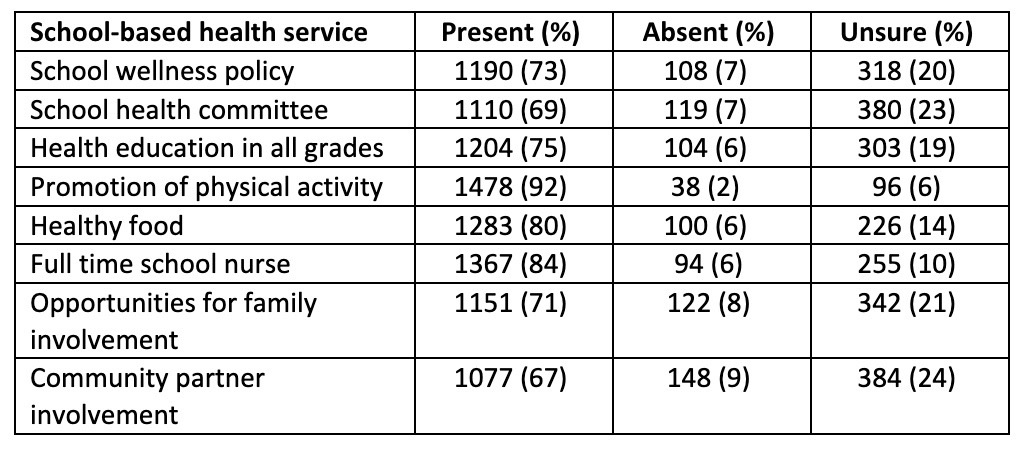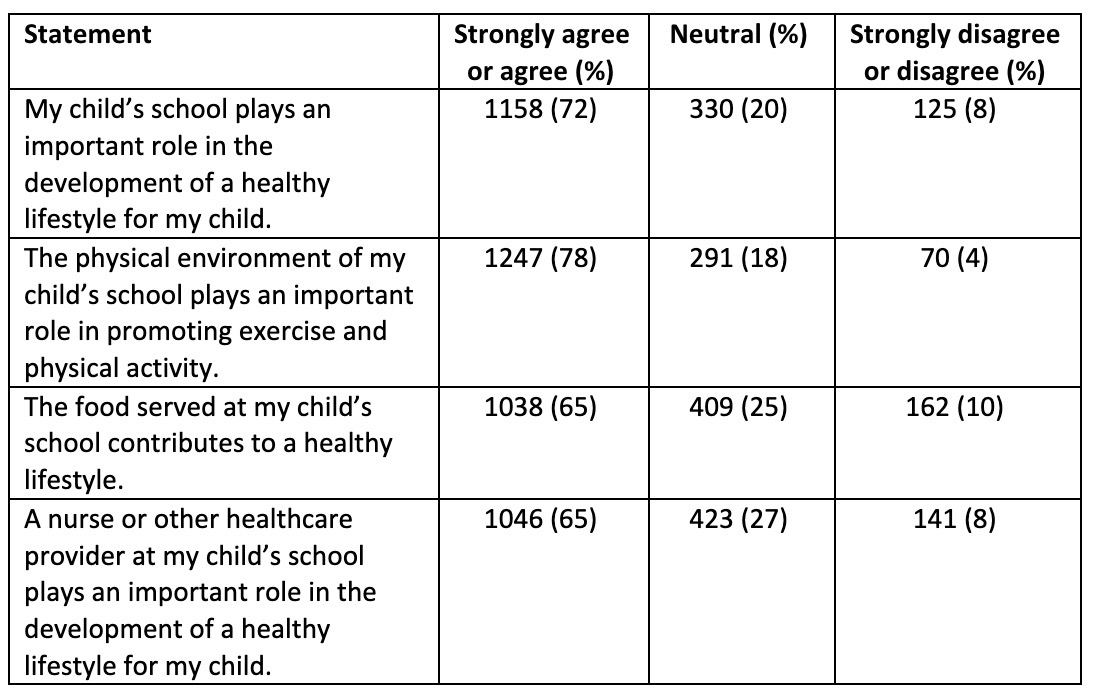Public Health & Prevention
Public Health & Prevention 2
100 - School health: What parents know
Friday, April 28, 2023
5:15 PM - 7:15 PM ET
Poster Number: 100
Publication Number: 100.15
Publication Number: 100.15
Carolyn Sleeth, University of Wisconsin School of Medicine and Public Health, Fitchburg, WI, United States; Bradley Kerr, University of Wisconsin School of Medicine and Public Health, Madison, WI, United States; Qianqian Zhao, University of Wisconsin at Madison, MADISON, WI, United States

Carolyn Sleeth, MD, MPH (she/her/hers)
Assistant Professor of Pediatrics
University of Wisconsin School of Medicine and Public Health
Fitchburg, Wisconsin, United States
Presenting Author(s)
Background: Coordinated school health programs have been shown to improve both academic achievement and wellness for children. Family engagement is a key component in the Whole School, Whole Community, Whole Child model of school health put forth by the CDC. Few studies have examined the role that families play in this model.
Objective: The purpose of this study was to explore parental knowledge of and perspectives regarding school-based health services for their children.
Design/Methods: In this cross-sectional online survey study, a national sample of parents of children 5-18 were recruited from Qualtrics panels in August 2022. The survey, adapted from previously validated instruments, assessed parents’ knowledge of school-based health services in their child’s school and the perceived importance of these services. Data were analyzed using Chi-squared analyses and Fisher exact tests.
Results: 2150 participants completed the online survey. Of participants, 73% (n = 1563) were female and 60% (n = 1293) were between the ages of 30-45 years old. The majority of participants knew that their children’s schools provided health services (mean 76%; Table 1) and thought that schools were supportive locations for their child’s overall health and well-being (mean 70%; Table 2). However, close to 20% of participants were unsure of the health services available at their child’s school (mean 17%, Table 1). Presence of many school health services, including health education, was reportedly lower for parents with lower income levels (88%, p=0.003) and those who lived in rural areas (85%, p< 0.0001). Specific characteristics of the family, such as having a child with a chronic health condition, influenced the importance parents placed on school health systems.
Conclusion(s): Participants’ knowledge and perception of school-based health services varied significantly based on both child-dependent and parent-dependent factors. These finding suggest families of specific demographics, including lower incomes and rural location, could benefit from future outreach to increase awareness of these services, as well as interventions to optimize services and increase their perceived importance.


